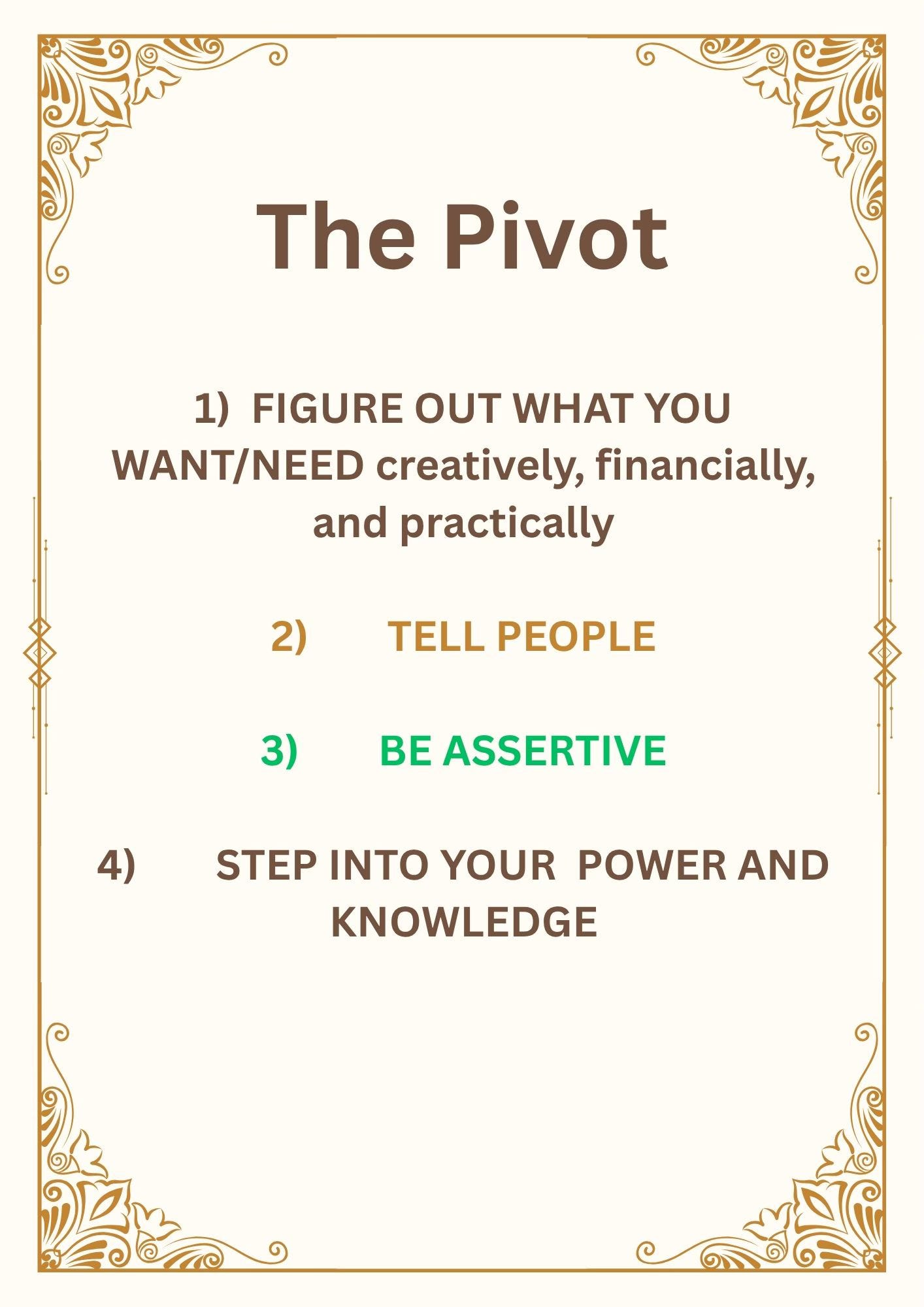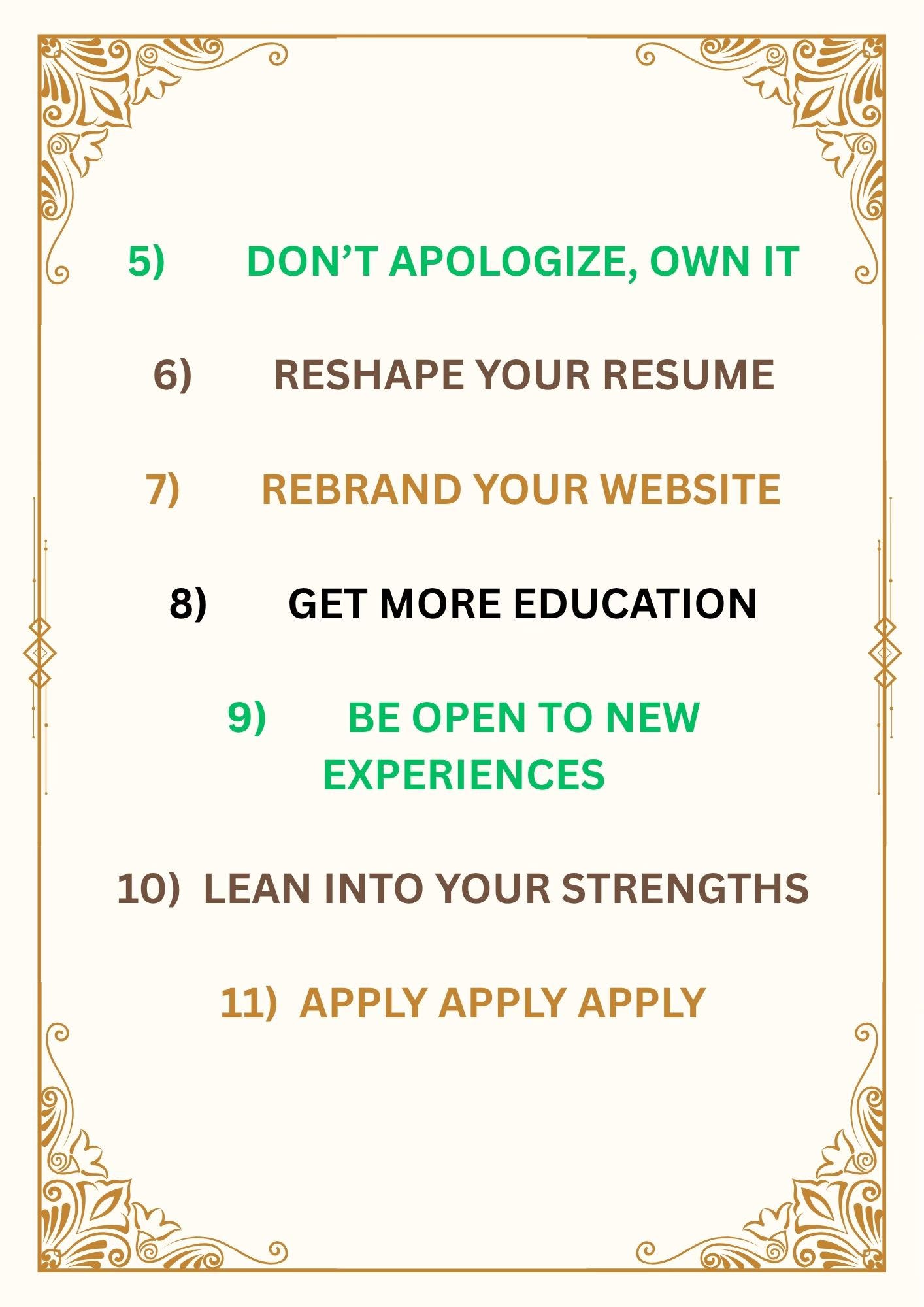I’ll be honest here: this is not an article I want to write.
I want to write articles where I talk about ways to reach out, get work, improve performance, and embrace creativity with the career of being a freelance narrator (or any freelancer, really). I really want to write articels about what to do when you’re overbooked…but I think there are important aspects of this work that we need to talk about and normalize.
The biggest thing I’d like to see people start talking about:
Audiobook narrators/professionals should have a side hustle. Starting right now.
Why? Because so much in the industry has changed, is in the process of changing, and will continue to change, and we don’t fully know in what ways or how it will affect our workflow/income.
What was once a steady profession is now a competitive career with more talent than books, companies that are downsizing or constricting, with more and more companies heavily investing in AI.
We all need to protect ourselves and normalize that having a side hustle isn’t an act of desperation; it’s an act of preservation, ingenuity, and is ultimately a smart business decision.
PIVOTING
When you hear the word PIVOT, what do you think about? What do you feel?
For me, I feel a combination of words like panic, overwhelm, versatility, dance, flow, scared, mad, exhaustion, need, money.
Understanding my reaction to the word helps, because I can acknowledge all those feelings, feel them, and then get on with pivoting.
Pivoting does not have to be an entire career change. Pivoting can be staying rooted in your main career, and then letting one leg tiptoe around and do other things.
Just like it sounds, it requires coordination.
WHY PIVOT?
What are the benefits of having multiple income streams?
Less financial stress—It takes the ease off filling an empty calendar every month. You already have a place and budget to start from.
More flexibility—Once you know your side hustle, you can incorporate it into your daily work.
More security—Just knowing you have a little income coming in is comforting.
Pivoting can mean a lot of things. It can mean getting additional work, but it can also mean strengthening your security in narration by
having lots of clients
being a good worker
not burning bridges with anyone.
You can pivot close to narration work and record public domain titles, take on royalty shares or create content. You can coach (but remember when you coach you are also training your competition). You can prep, do post-production, do marketing or social media for other clients.
But what about looking for something outside of narrating? How do you even start?
REMEMBER: Pivoting is changing without starting over. You don’t lose where you’re at in narration. You’re simply expanding what you offer.
STEPS TO PIVOT
STEP ONE:
Set aside ego and shame. There is no shame in supporting yourself and your family in any way you need to.
STEP TWO:
Brainstorm. Look at your skills and see how/where you can apply them
STEP THREE:
Start to pivot. Let people know what you’re offering and/or start looking for other part-time work.
EXERCISE ONE:
Think of things you enjoy about narrating and that you’re good at. List them. We did this online in a workshop I offered for PANA and they came up with so many great things like:
Research, computer programs, marketing, social media, language comprehension, multi -tasking, coordinating calendars, working directly with authors, publishers and producers, invoicing, scheduling, computer/technical know how, strong writing skills, etc. etc.
(Please leave a comment if you can think of other skills that narrating/freelancing provides you with.)
Your audiobook skills are transferable and can apply to a lot of positions.
Is there anything in here you could explore further? Anything you’re good at that might work in another industry?
What industries need self-motivated people? Where is the work?
(Feel free to share comments. You could help someone who needs some ideas.)
EXERCISE TWO
When you know your skills, think about your ideal side hustle and answer these questions:
Do you want:
1. To work from home or an office?
2. To interact with others or to work on your own?
3. Have a flexible or defined schedule ?
4. Continue freelancing or get a paid position that takes out taxes?
5. What work hours do you want?
Once you have a clearer idea of your skills and what you want from work, you can start looking for that work.
FINAL STEPS
Now that you know what direction you want to go in, how do you get there? Here are some proactive steps you can take to get the side hustle you want.
FIGURE OUT WHAT YOU WANT/NEED creatively, financially, and practically
TELL PEOPLE
BE ASSERTIVE
STEP INTO YOUR POWER AND KNOWLEDGE
DON’T APOLOGIZE. OWN IT
RESHAPE YOUR RESUME
REBRAND YOUR WEBSITE
GET MORE EDUCATION
BE OPEN TO NEW EXPERIENCES
LEAN INTO YOUR STRENGTHS
APPLY APPLY APPLY
For me, my side hustle was casting work. I loved it and I was (am) good at it. Sadly, my casting gig ended when the company I was working with was purchased by another company. I’d still like to do casting, but I haven’t found a position yet. (Hey companies, if you’re looking for someone with a lot of industry knowledge and passion, Hiiii!)
Right now, I use Substack and my writing to give me a little additional monthly income. I also make a few royalties on audiobooks that I’ve written or done as a royalty share. I’d like to continue to let casting and writing be my side hustle, but I may have to branch out if that income isn’t enough.
Remember: Don’t be ashamed of looking for additional work. It’s normal and necessary in an evolving industry. Be proud of being proactive.
WHEN PIVOTING AND REBRANDING DOESN’T WORK
(See previous article on steps to help you rebrand)
What if rebranding and pivoting aren’t enough?
Do you give up?
Maybe. At some point.
Or maybe you can take a vacation or a sabbatical before leaving the work entirely.
Ask yourself if the hustle is too much. Be realistic with the work you have coming in, and the work you’re lacking. Are you investing more in your career than you’re making?
Look for signs that tell you to focus some energy elsewhere.
When you’re strong enough or when the work returns, reach back out to people and let them know you’re back.
You can always come back.
I had a number of months with no work. I thought my career as a narrator was over. I mourned it. And then I looked for other work. I successfully invested in my side hustle until my narration work returned, and while my narration work was returning, I kept my side hustle. The balance was great. Now, I’m looking for another side hustle gig, but have enough narration to keep me going for a few more months.
KEEP AT IT
No matter what happens in our industry, I think there will always be a place for human storytelling and connection. Let’s keep at it for as long as we can, be smart and have side income if we can, and continue to shine in the work we do.
***
In my next articles, I’ll get back to talking about the things I love: doing narration work joyfully, creating stories, and living a bold and beautiful life.
ABOUT TANYA
Tanya Eby is a narrator and writer. She loves feeding the hummingbirds, geese, chickens, and other winged creatures that visit her house. Whatever she does for work, she’s hoping to keep her home base of Michigan with occasional travel to LA and NYC or wherever else she needs to go. She’s a strong communicator, somewhat awkward, and is terrible at office water cooler small talk. She’s great at panels, making audiences laugh and feel comfortable, and sharing insights. It’s probably best that she stay a freelancer for as long as is possible.







Tanya, reading this article hits home as to how fortunate I am to not consider this as a full time. We have grown in bigger numbers post COVID and I am curious to see from a statistics POV, how many actually are full time, what background do they have to start with that made them rise to successful FT narrators. Through many coaching sessions and Webinars, we were often reminded ‘ DON’T QUIT YOUR DAY JOB!’. From observations, most of who are successful FT, have some acting /theatre/singing background….another stat to explore is how many who don’t have theatrical background MADE it successfully. Thank you again for a thought provoking topic